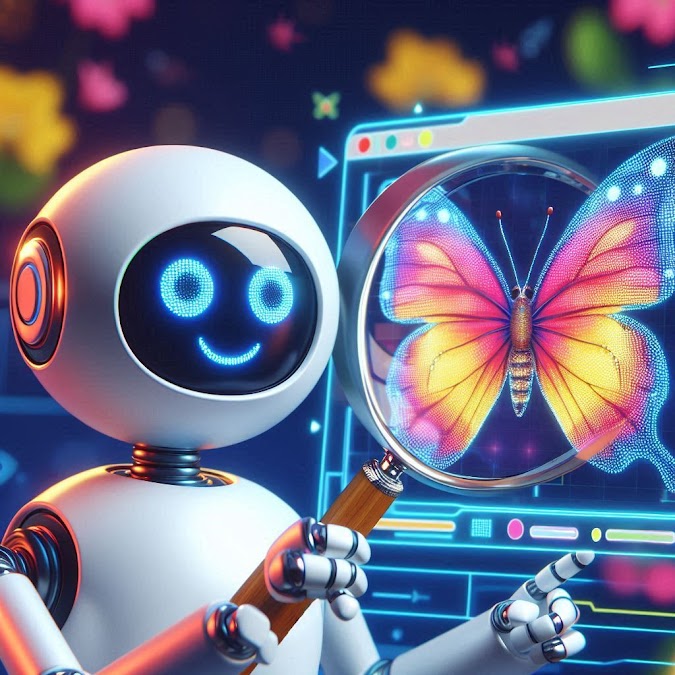The Transformative Power of Artificial Intelligence
Artificial Intelligence (AI) is transforming the world as we understand it. AI's influence is extensive and significant across various fields, including healthcare, finance, transportation, and entertainment. This article delves into the various facets of AI, exploring its applications, benefits, challenges, and the future it promises.
What is AI?
AArtificial Intelligence involves creating machines that mimic human cognitive functions, enabling them to process information, reason, and learn similarly to humans. These advanced machines can execute tasks that usually need human intelligence, such as visual perception, speech recognition, decision-making, and language translation. AI can be broadly categorized into two types: Narrow AI, which is designed for a specific task, and General AI, which can perform any intellectual task that a human can do.
Applications of AI
Healthcare: AI is transforming healthcare by providing tools for early diagnosis, personalized treatment, and efficient administration. Machine learning algorithms analyze medical data to detect diseases at an early stage, while AI-powered robots assist in surgeries, reducing human error and improving outcomes.
Finance: In the finance sector, AI is used for fraud detection, risk management, and personalized banking services. AI algorithms analyze transaction patterns to detect fraudulent activities and assess credit risks more accurately than traditional methods. Chatbots provide customers with instant support, enhancing their banking experience.
Autonomous vehicles and AI-driven traffic management systems are set to revolutionize transit. Self-driving vehicles utilize artificial intelligence to traverse routes, evade barriers, and make instant choices. AI systems optimize traffic flow, reducing congestion and improving safety.
Entertainment: AI is reshaping the entertainment industry by personalizing content recommendations and creating immersive experiences. Streaming services use AI algorithms to suggest movies and shows based on user preferences. In gaming, AI creates dynamic and responsive environments, enhancing the player experience.
E-commerce platforms use AI to suggest products based on browsing history, while AI-driven chatbots assist customers with inquiries and purchases.
Benefits of AI
AI streamlines routine tasks, allowing human employees to concentrate on more sophisticated and innovative projects
Accuracy and Precision: AI systems can process and analyze vast amounts of data with high accuracy and precision. This capability is particularly valuable in fields like healthcare and finance, where precise analysis is crucial.
Innovation: AI drives innovation by enabling new solutions and technologies. From developing new drugs to creating advanced robotics, AI opens up possibilities that were previously unimaginable.
Enhanced User Experience: AI personalizes user experiences by analyzing individual preferences and behaviors. This leads to more tailored and satisfying interactions, whether in entertainment, shopping, or customer service.
Challenges of AI
Ethical Concerns: The rise of AI raises ethical questions about privacy, security, and the potential for biased algorithms. Ensuring that AI systems are fair, transparent, and respect user privacy is a significant challenge.
Job Displacement: The automation of tasks by AI threatens to displace jobs, particularly those involving routine and repetitive work. Addressing the potential unemployment caused by AI is crucial for social stability.
Security Risks: AI systems are vulnerable to cyberattacks and manipulation. Ensuring the security and integrity of AI systems is vital to prevent malicious use.
Lack of Understanding: AI is a complex field, and there is a general lack of understanding about how AI systems work. Educating the public and policymakers about AI is essential for informed decision-making.
The Future of AI
The future of AI holds immense potential. As technology continues to advance, AI is expected to become more integrated into our daily lives. Here are some key trends to watch:
AI in Healthcare: AI will continue to advance in healthcare, providing more accurate diagnostics, personalized treatments, and advanced medical research capabilities.
Smart Cities: AI will play a crucial role in developing smart cities, where AI-powered systems manage resources, traffic, and public services efficiently.
AI and Education: AI will transform education by providing personalized learning experiences, automating administrative tasks, and enabling new forms of online learning.
Ethical AI: Efforts to develop ethical AI will intensify, with increased focus on creating transparent, fair, and accountable AI systems.
AI and Creativity: AI will collaborate with humans in creative endeavors, from art and music to writing and design, pushing the boundaries of creativity.
Conclusion
Artificial Intelligence is a transformative force that is reshaping industries, enhancing efficiency, and driving innovation. While it presents challenges, the potential benefits of AI are immense. As we navigate the complexities of AI, it is essential to address ethical concerns, ensure security, and educate society about this powerful technology. The future of AI promises exciting advancements that will continue to revolutionize the way we live and work.


Post a Comment for "The Transformative Power of Artificial Intelligence"